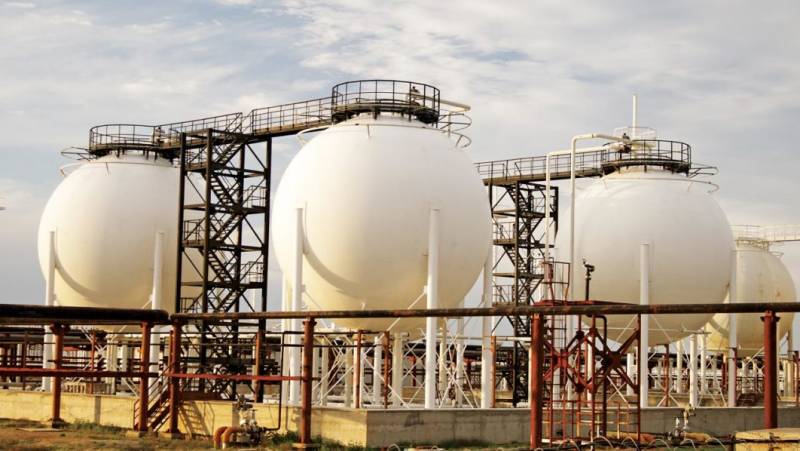Notwithstanding the demand for gas both for power and household consumption, stakeholders have expressed worry that an unfavourable fiscal regime might stall the realisation of projects capable of meeting 40 per cent of the incremental gas requirement.
Specifically, they noted that gas projects couldn’t be handled in the usual manner due to the domestic demand and need to attract investors for its development.
The Managing Director, Nigeria LNG Limited, Dr. Philip Mshelbila, stated that 10 projects capable of delivering 40 per cent of the incremental gas requirement Nigeria needs have been identified in the upstream industry.
Mshelbila at the Nigerian Gas Association (NGA) 2021 business forum added: “There are all manner of things covered in the project such as pricing, infrastructure that the decade of gas has raised, but it needs expedited attention to make it a reality.”
He also stated that despite the PIA being in place, there seems to be a flight of investors, specifically international oil companies (IOCs) from the nation’s upstream industry all in the name of divestments.
“We have to stop and ask ourselves what is going on there. If the PIA is exactly what we say it is and if we are so convinced by the decade of gas, why are investors leaving? he queried.
The Commission Chief Executive, Nigerian Upstream Petroleum Regulatory Commission (NUPRC), Gbenga Komolafe, said with the enactment of the PIA, the legal, regulatory, fiscal, governance and institutional frameworks to enable the attainment of the key imperatives of government for the Nigerian oil and gas sector have been emplaced.
He said the administrative provisions of Petroleum Exploration Licences (PEL), Petroleum Prospecting Licences (PPL), and Petroleum Mining Leases (PML), which replace the erstwhile OEL, OPL and OML arrangements, clearly suggest that gas exploitation will no longer be subservient to oil, as natural gas is to be explored and developed as a resource in its own right.
He added that the bedrock and foundation of the federal government’s decade of gas development initiative and the country’s energy future is hinged on collaborative partnership.
Earlier, the Minister of State for Petroleum Resources, Timipre Sylva represented by the Technical Adviser, Gas Business and Implementation, Justice Derefaka said: “To make that happen, individual and corporate Nigerians, as well as governments at all levels, must develop a new enlightenment, an energy literacy that includes a profound understanding that energy pervades all aspects of our lives and is a key component of our social fabric, one that is so influential and charged as a strong force of national unity,” he said.
He said with the PIA, Nigeria is presently in the enviable “catbird seat” as an energy powerhouse and is ready to become one of the world’s most energy productive nations, with excellent environmental performance and wealth in all parts of the country.
“The PIA is part of the Federal Government’s resolve and commitment to building a competitive and resilient petroleum industry that will attract investment, improve revenue base, create jobs & support the economic diversification agenda,” he said.
Also speaking, the Group Managing Director Nigeria National Petroleum Corporation (NNPC) Limited, Mele Kyari, said the PIA is essentially a gas bill, saying that Nigeria’s focus had always been on the liquids which took away the nation’s focus from the opportunities in the gas sector.
According to him, there is an infrastructure fund established in the bill which is essentially to ensure that infrastructure in the gas sector is put in place, saying that without adequate infrastructure, there is little the sector would achieve.
He noted that the bill would clearly make way for investments that are needed in the sector, adding that for upstream players, the act has created one of the most competitive fiscal environments and frameworks.
He said the country has experienced massive movement and a number of indications that investors are ready to put money in a number of gas infrastructure and gas-based industries, pointing out the country is currently struggling to meet the demand of customers.
“This means the market is there and structures are being put in place to ensure that investors get their return on investments. Eventually, we are going into a situation of willing buyers, willing sellers even as we transit. The framework on ground is enough for people to invest their money and get back their costs,” he added.
He reaffirmed NNPC’s commitment to supporting businesses, saying it is its role to align every partner in the business in a very commercial sense to ensure that investors see the opportunities in the upstream and also in the midstream in terms of gas infrastructure and gas-based industries, stressing that the country is already receiving huge commitments from partners across the globe to do business with Nigeria.
“We believe that as time goes on, we will see the benefits of these commitments coming up as soon as 2022 and not in ten years time. A lot of institutional changes are happening and we also believe that a lot of prosperity is coming into the country through the gas initiatives,” he said.
The president, Nigerian Gas Association, Ed Ubong, said 2021 has been a pivotal year for gas development in Nigeria building on the gains of last year.
He said all hands are now on deck to unlock the potential Nigeria has across all the value-chain both from upstream, midstream, downstream and even up to the end users.
On his part, the Chief Executive Officer of the board of the Nigerian Midstream and Downstream Petroleum Regulatory Authority (NPRA), Farouk Ahmed, reassured stakeholders in the industry that no effort would be spared to ensure that the implementation of the PIA is accompanied with the defined timeline stated by the President.
He stressed that ongoing collaborations and engagements across the industry shall be progressively consolidated to ensure that full implementation of the PIA is achieved through optimal stakeholder collaboration and cooperation.
SOURCE : guardian




